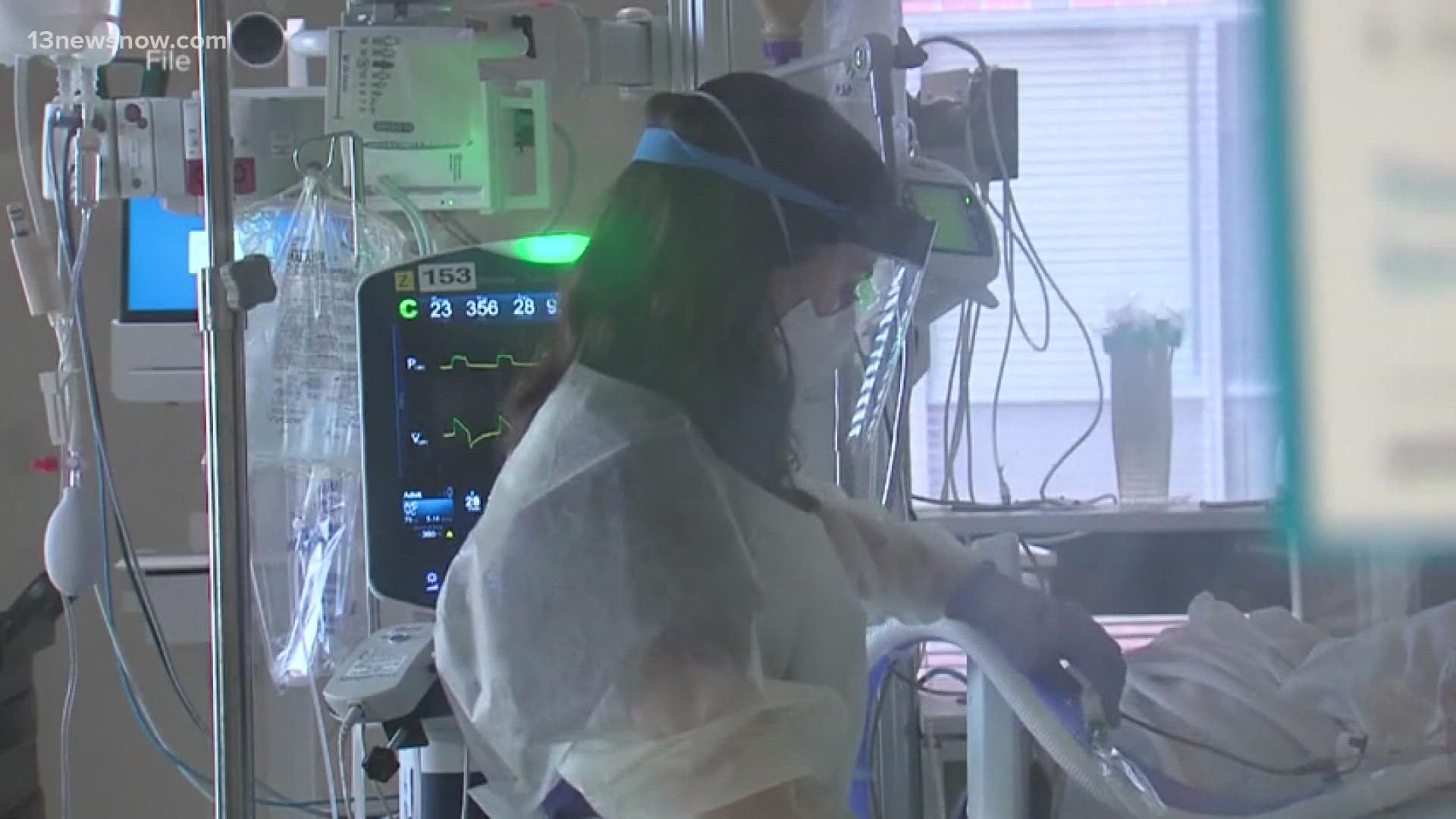NORFOLK, Va. — Instead of omicron making up roughly 73% of new COVID-19 cases nationwide, the CDC backtracks on its estimation.
The agency said Tuesday that, as of December 25, Omicron accounts for approximately 59% of new cases. Still, it's the dominant strain.
Health experts are trying to figure out exactly what's fueling another spike in cases nationwide and statewide.
"Is that increase due to omicron being inherently more transmissible than all the previous variants?," Dr. Brandy Darby with Virginia Department of Health (VDH) asked. "Or is it due to the omicron's abilities to evade some of the immune protections we have within our population?" Or it could be both.
The aforementioned are "pieces of the puzzle" Darby said health experts are monitoring.
Darby is a veterinary epidemiologist and a member of the COVID-19 Response and Health Information teams with VDH.
When it comes to symptoms, she said that's a tricky subject too.
"We have seen some reports that loss of taste and smell may be happen a little less often with omicron. That said, we've got a lot of flu going around right now and a lot of cold virus and a lot of respiratory virus as well," she said.
Some of the most common symptoms for the omicron variant are runny nose, headache, fatigue, sneezing and sore throat. However, Darby explained there's no one tell-tale sign you have it.
"So the only way to know for certain if you're feeling ill is to go and get tested," she added.
And if you happen to get your hands on an at-home COVID test kit, you're asked to let your know local health department know whether you tested positive.
Moreover, a study from the U.K. published late last week shows that people with omicron are up to 70% less likely to become hospitalized than those with the Delta variant.
Darby said that while breakthrough infections are possible, omicron is all the more reason to get vaccinated and boosted.
"For a person who is unvaccinated or not seen the virus before, there is still a good potential that we could see severe outcomes in those populations."
As further evidence of this variant’s unique profile, a small and early study out of South Africa suggests that contracting omicron can boost immunity against the Delta variant.
Vaccinated participants in the study were even better protected.
.

